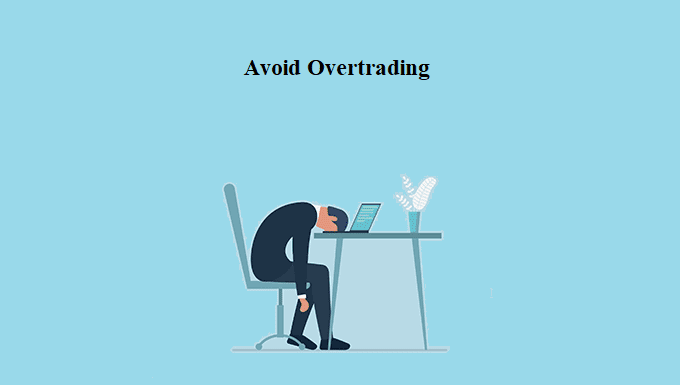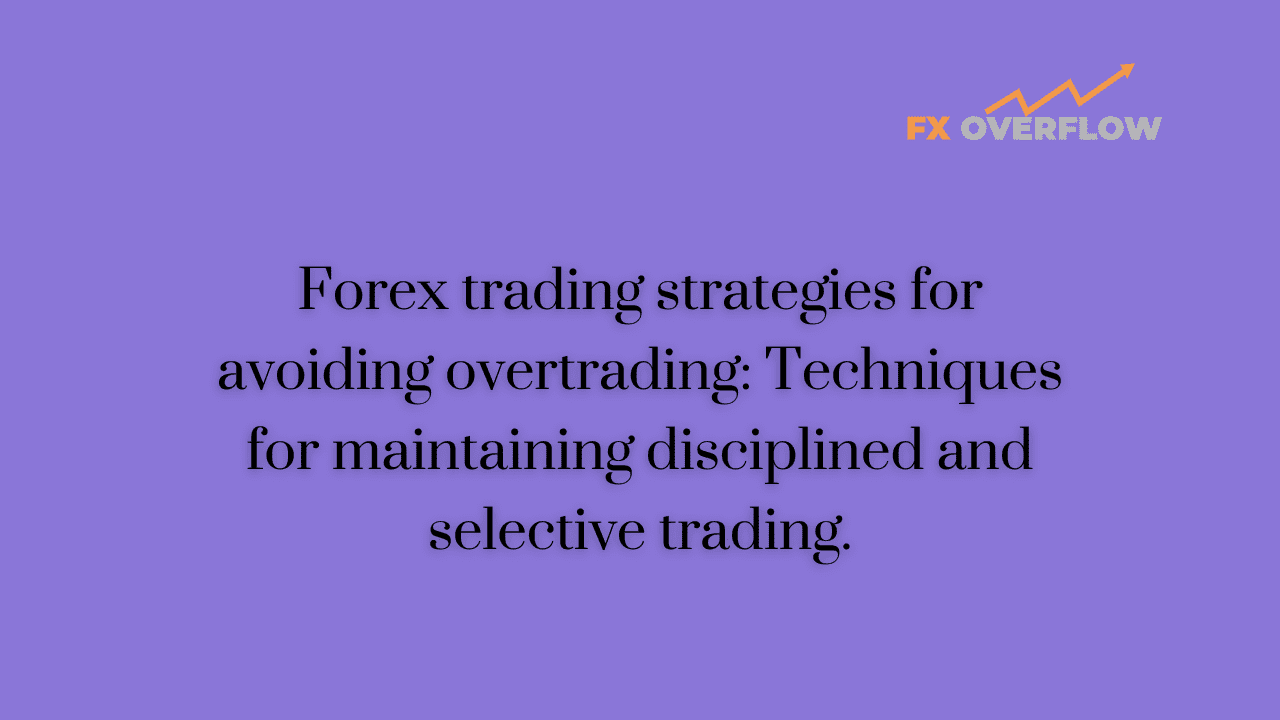Forex trading strategies for avoiding overtrading: Techniques for maintaining disciplined and selective trading.
Forex trading offers lucrative opportunities, but overtrading can lead to substantial losses and burnout. This article delves into effective strategies for avoiding overtrading, emphasizing the importance of disciplined and selective trading techniques. By implementing these strategies, traders can enhance their decision-making processes, manage risks, and maintain a healthy trading mindset.

Table of Contents:
- Introduction
- The Dangers of Overtrading
- Strategies for Avoiding Overtrading
- Setting Clear Trading Goals
- Developing a Well-Defined Trading Plan
- Utilizing Risk Management Techniques
- Practicing Patience and Selectivity
- Embracing Technology and Automation
- Maintaining a Disciplined Trading Psychology
- Recognizing Emotional Triggers
- Practicing Mindfulness and Self-Control
- Case Studies: Real-Life Examples
- Frequently Asked Questions (FAQs)
- Conclusion
Introduction:
Forex trading presents an enticing arena for investors to tap into the vast potential of the global currency markets. However, the thrill of trading can often lead to a common pitfall – overtrading. Overtrading occurs when traders execute excessive trades, often driven by emotions rather than a well-thought-out strategy. This article aims to equip traders with a comprehensive understanding of the dangers of overtrading and offers practical strategies to maintain disciplined and selective trading practices.
The Dangers of Overtrading:
Overtrading can have severe consequences, including financial losses, increased stress, and impaired decision-making abilities. Traders who succumb to the allure of overtrading often neglect proper risk management and analysis, leading to suboptimal results. The volatile nature of the forex market amplifies these risks, making it crucial for traders to adopt strategies that minimize the chances of overtrading.
Strategies for Avoiding Overtrading:
a) Setting Clear Trading Goals:
- Establish achievable profit and loss targets.
- Determine a maximum number of trades per day or week.
b) Developing a Well-Defined Trading Plan:
- Outline entry and exit criteria for trades.
- Identify optimal market conditions for trading.
- Include a review mechanism to assess and refine the plan.
c) Utilizing Risk Management Techniques:
- Set stop-loss and take-profit levels for every trade.
- Adhere to a fixed risk percentage per trade to protect capital.
d) Practicing Patience and Selectivity:
- Wait for high-probability setups that align with the trading plan.
- Avoid trading during low liquidity or high volatility periods.
e) Embracing Technology and Automation:
- Utilize trading algorithms and automated systems to execute trades.
- Implement alerts to notify traders of potential opportunities.
Maintaining a Disciplined Trading Psychology:
i) Recognizing Emotional Triggers:
- Identify emotional states that lead to impulsive trading.
- Implement a "trading journal" to track emotions and decisions.
ii) Practicing Mindfulness and Self-Control:
- Employ relaxation techniques to reduce stress during trading.
- Take breaks to clear the mind and refocus.
Case Studies: Real-Life Examples:
Explore real-life scenarios where traders fell victim to overtrading and its consequences. Analyze how adopting disciplined and selective strategies could have led to better outcomes.
Frequently Asked Questions (FAQs) and Answers:
Q1: Why is overtrading a common problem among forex traders?
A: Overtrading often arises from emotions like greed and fear, combined with a lack of discipline and a failure to adhere to trading plans.
Q2: How can I set realistic trading goals?
A: Start by assessing your risk tolerance and financial objectives. Set achievable profit targets and determine a maximum number of trades that align with your strategy.
Q3: What role does risk management play in avoiding overtrading?
A: Risk management is crucial for limiting potential losses. Set stop-loss and take-profit levels for every trade, and never risk more than a predetermined percentage of your trading capital.
Q4: Is automated trading a reliable way to prevent overtrading?
A: Automated trading systems can be beneficial, but they require careful development and testing. They can help execute trades based on predefined criteria, reducing emotional impulses.
Q5: How do emotions affect trading decisions?
A: Emotions like fear and greed can lead to impulsive trading, causing traders to deviate from their strategies. Keeping a trading journal and practicing mindfulness can help manage these emotions.
Footnote:
Forex trading success is not solely based on the number of trades executed, but rather on the quality of trades and the discipline exercised. Overtrading is a common pitfall that traders must actively avoid. By setting clear goals, developing comprehensive trading plans, employing effective risk management techniques, and maintaining a disciplined mindset, traders can navigate the forex market with confidence, consistency, and profitability. Remember, less can often lead to more in the world of forex trading.











Discussion